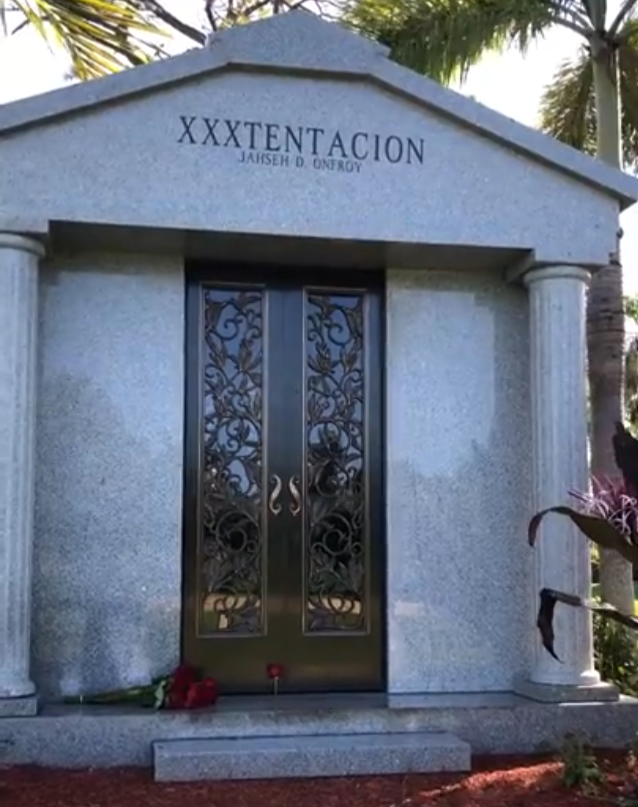Are posthumous album releases wrong?
The question resurfaces in light of the release of a “Deluxe” version of XXXTENTACION’s “?” project.
On July 26, EMPIRE, late-rapper XXXTENTACION’s record label, released a “deluxe” edition of his chart-topping 2018 project, “?” The album itself is a triple LP, which includes the original “?” project, all of its accompanying instrumentals, his entire 2017 project “A Ghetto Christmas Carol,” a bonus LP containing unreleased material, remixes and voice memos from the recording sessions during “?’s” creation.
Quite the mouthful. While this continues an ongoing trend of over-stuffed hip-hop albums like Drake’s “Scorpion” and, more recently, Chance the Rapper’s “The Big Day,” the major question doesn’t revolve around the number of songs on this album, but the morality of the album’s release itself.
Just weeks before the tragic murder of XXXTENTACION on June 18, 2018, the budding star signed a $10 million record deal with the aforementioned EMPIRE. XXXTENTACION created his own record label underneath EMPIRE’s umbrella, giving him more power to release music on his terms. But, who took on the responsibility when XXXTENTACION died? The answer lies within the fine print.
Due to the details of the contract, EMPIRE and Bad Vibes Forever now hold the key to XXXTENTACION’s vault of unreleased music. The nature or motives of the record label gather much attention, especially after it was announced the late artist’s second posthumous album, “Bad Vibes Forever,” is set to release sometime this fall.
On online forums like Reddit and HotNewHipHop.com, many fans express their gratitude and praise of the album’s release while many others question the nature of its release. There are no new songs on the deluxe version of “?,” leaving many to wonder just how much EMPIRE has left in the vault.
This leads us to the essential question: are posthumous albums disrespectful and morally bad? Or, are they a collection of distinct memories that provide a new element to the deceased that should be encouraged?
Posthumous music releases affect artists across all genres. Renowned artists like Jimi Hendrix, Johnny Cash, Tupac and the Notorious B.I.G. all had posthumous albums released under their names. In any discussion about these projects, the major theme across all arguments against posthumous albums is that the project lacks the creative direction and approval of the late artists.
Critics and fans alike of Tupac expressed mixed reviews of the 2004 release, “Loyal to the Game.” One major critique is of the album’s creative direction, pertaining to anything related to feature artists or choice in production. One fan states the project felt “bogged down by current production and features that seem questionable.”
Another example of this issue lies with Jimi Hendrix. On his 1975 release “Crash Landing,” the otherwise raw, improvisational nature of Hendrix’s insane songs was remiss. Rather, the tracks felt polished and clean to a point where it felt unnatural. For an artist who thrived off of flair and his unique style, this one such project was not one that felt like it was curated by Jimi himself.
Does this make the release immoral, disingenuous or disrespectful? In some sense, most definitely. The monetary aspect of posthumous albums are one thing, but the most glaring issue when it comes to these projects is that it simply lacks the character, vision and energy that the artist would have otherwise provided. When a label or estate seizes the rights to an artist’s production, it becomes something else entirely.
Yet, I would not be telling the truth if I said there are not any posthumous albums I would love to hear. With any artist, especially those you are big fans of, there is a certain nostalgia and excitement that comes with the release of new music. After death, that sentiment is still very much the same, and like many of XXXTENTACION’s fans, it was not the music itself that was important, but rather, the memory.
One of the best parts about post-death albums is that it allows the listener to, just for one more time, get excited about the prospect of new music from a beloved musician. While some posthumous projects end up missing the mark, they do create an opportunity for something truly special.
Perhaps the best example of such an album would be “Life After Death” from The Notorious B.I.G. In the wake of his death, the Brooklyn-bred legend left behind a record that kept breathing life into hip-hop even after his tragic death just two weeks prior.
Despite its length, “Life After Death” was still very much essential Biggie. Hard, yet clever gangster raps painted a picture of Biggie’s life and the world he lived in. The album still felt very much like the legend himself, and in a time where the hip-hop community grieved, this made the wound much easier to bear. Along with the memory and nostalgia “Life After Death” boasted, it still made Biggie feel like he was alive and well, continuing to influence hip-hop well after his death.
In essence, post-mortem album releases extend the legacy of the artist. It supplements their career and serves as a reminder of who they were, what they stood for and what their vision was for music.
It still strikes me differently whenever I hear that there is a new XXXTENTACION song being released. But there is no doubt that an artist like him provides the same nostalgia for his fans like Tupac or Biggie does for their fans. These albums often escape the creative scope of their original intent, but for the most part, they provide fans with a positive memory and excitement.
So long as morality is in order, and the money goes to the right place, post-mortem album releases ought to be treated as celebrations rather than heartless cash grabs.
Email Trevor at [email protected] or follow him on Twitter @TrevorWilsonOG.







